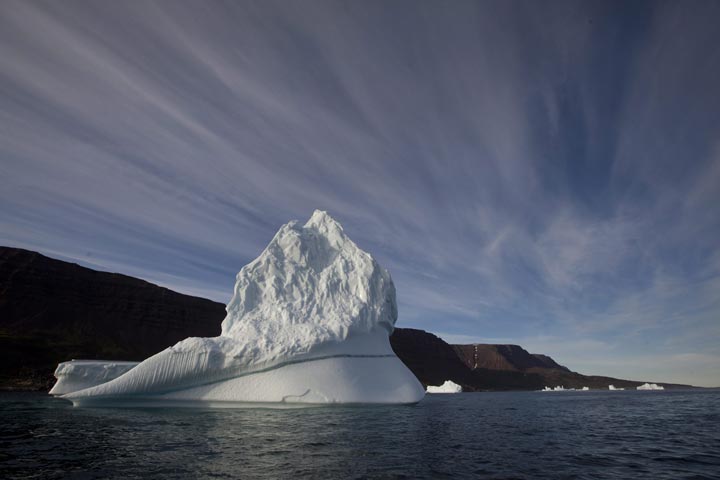Russian officials are refusing to allow a Greenpeace icebreaker into that country’s oil-rich Arctic seas as multinational energy companies begin opening those waters to development.

Officials with the environmental group say Russia’s refusal is an attempt to keep international scrutiny away from the controversial developments. They say repeated denials of a permit for the Arctic Sunrise to enter the Northern Sea Route violate international law.
“These western companies are coming to Russia to operate in conditions where standards are lower and there’s less scrutiny and fewer consequences,” said Christy Ferguson, a Canadian Greenpeace member on board the Arctic Sunrise, which is expected to cross into Russian waters Friday.
The Russian government has made no secret of its desire to develop its offshore energy reserves, thought to be the richest of all the Arctic nations. President Vladimir Putin has said he plans to secure $500 billion worth of investment in the Russian offshore over the next 30 years.
Western majors including ExxonMobil, Royal Dutch Shell, Total and Eni are all present, mostly through joint ventures with state-owned companies such as Gazprom and Rosneft.
“We want to go to the Kara Sea to bear witness and document what’s happening in terms of preparation for oil drilling,” said Ferguson, who spoke to The Canadian Press via satellite phone.
To get there, the Arctic Sunrise has to use the Northern Sea Route, which runs over the top of the continent and requires a permit from the Russian government.
“We decided that we would be straightforward with our intentions, that we would follow the procedures as they are laid out to the letter and that we would be transparent about our intention to go there to conduct non-violent, legal protest,” Ferguson said.
The Arctic Sunrise did so in the Norwegian waters of the Barents Sea earlier this week where it confronted a Rosneft vessel conducting high-volume seismic testing.
But even though more than 400 vessels have received permits for the Northern Sea Route this season, the Arctic Sunrise has been thrice denied.
Russia turned down the first two applications over concerns the vessel wasn’t sufficiently ice-hardened, although Greenpeace supplied documents from an internationally recognized organization to the contrary. Greenpeace says the Arctic Sunrise has a higher ice classification than any of the six oil exploration vessels in the region.
The third application was rejected over an alleged lack of information over the ship’s “ice belt breadth,” a term not normally used in ship description.
“From the pattern of refusals it is clear that NSR administration has never been interested in granting Greenpeace access,” said a Greenpeace statement.
Besides, said the group, the relevant area is ice free at this time of year.
“The refusal is in violation of international law including the right to freedom of navigation,” the statement said.
Officials from the Russian Embassy in Ottawa were not immediately available for comment.
Arctic offshore drilling has long been environmentally controversial.
There is currently no effective, reliable way to clean up an oilspill in the ice-choked and wind-whipped waters of the North. As well, the loud booms created by seismic work are thought to damage the hearing of Arctic mammals that navigate using sound.
No drilling or preparatory work is being conducted in the North American Arctic offshore. Shell’s plans for drilling off Alaska were abandoned last year over technical difficulties.
Standards in Russia are lower, said Ferguson. The country, for example, does not require the presence of a second rig to drill a relief well in case of a blowout, as do Canada and the United States.
She pointed out that one of the regions being explored is in a national marine park. Rosneft, she said, has recorded more inland oil spills than any other company in the world.
“It’s pretty concerning they are planning to take that operation into the Arctic and an Arctic national park.”
The Arctic Sunrise – with 28 people from 15 different countries – has asked the route’s administrators to reconsider their refusal to grant the permit.
The crew hasn’t made up its mind what it will do if it doesn’t get a permit by then, said Ferguson.
“If we have not heard back, we will make a decision if we will proceed.”



Comments